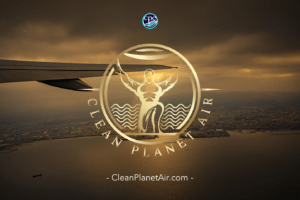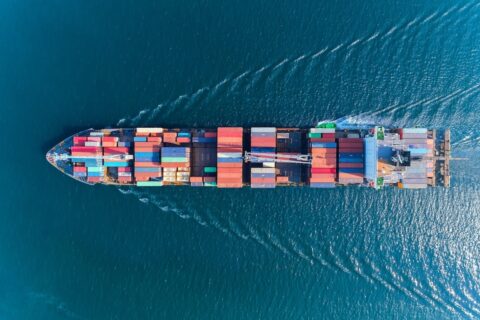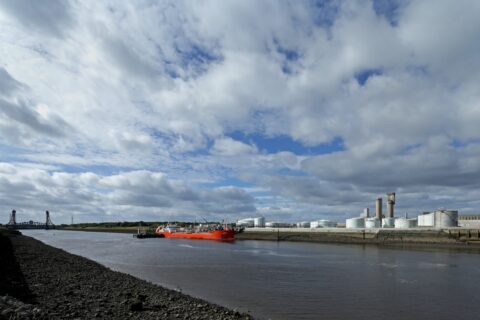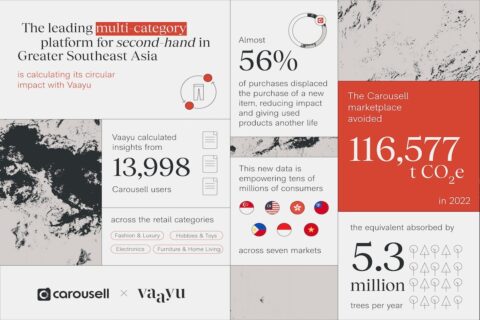
Sustainable air travel has long seemed like a contradiction in terms — an inflammatory oxymoron waving a red flag in the face of the green community. However, there is undoubtedly growing market interest and investment in clean technology and solutions to decarbonise aviation.
This push to see the industry clean up its act has only been accelerated by the grounding of many services during the pandemic and associated concerns about the environmental impact of a return to frequent flying. Against this backdrop, comes news of a pioneering new alternative jet fuel — one that not only slashes emissions, but also supports a circular economy by helping tackle the pollution problem of plastic waste.
Sustainable and green-energy company, Clean Planet Energy has announced a breakthrough product designed to significantly reduce carbon emissions in fossil-fuel led transport. Branded as Clean Planet Air, the certified Kerosene / Jet Fuel can be used as a direct replacement for the fossil-fuel equivalent. It reduces CO2 emissions by a minimum of 75% in comparison, whilst removing thousands of tonnes of waste plastics from the environment every year.
With no viable commercial alternative to fossil fuel-led aviation available until now, the impact numbers for air travel are alarming, even in a post-pandemic environment, explains Bertie Stephens, CEO of Clean Planet Energy (CPE):
“On an average day across the world, you would expect 75,000 planes to take off. The aviation industry is making great strides to be greener and cleaner, but still, it is calculated by the EEA that, for every 1,000 KM travelled (the average distance between the UK and Spain), a domestic flight will release 250kg of new CO2e emissions for every economy passenger onboard. Those numbers will not meet the emission cuts the world must make to stop climate change, so alternatives are needed now.”
In response, Clean Planet Energy is on a mission is to remove over one million tonnes of waste plastics from the environment every year. How they aim to achieve this is by launching ecoPlants which convert this plastic into new products, including ultra-clean fuels and petrochemical feedstocks to make new circular plastics. The plastics used by Clean Planet in their ecoPlants would otherwise be going to landfill, incineration, or worse, entering our oceans.
Chief Technology Officer at CPE, Dr Andrew Odjo gave further insight into the sustainability credentials of the fuel:
“In addition to the carbon emission savings, our Kerosene / Jet Fuel has an 850x reduction in the poisonous NOx (Nitrogen Dioxide) and SOx (Sulphur Oxide) emissions which are globally responsible for around 9,000 early-deaths a day. Also, the CPE technology is able to handle plastics that simply cannot be mechanically recycled today, helping provide a solution to the waste-plastic crisis, too.“
With the first two plants already under way in the UK, and another four in development, CPE is currently scaling its ecoPlant pipeline, working with Local Authorities around the UK and Europe to provide a revenue-generating solution.
Clean Planet Energy has already introduced a certified, premium, ultra-clean and zero-sulphur diesel fuel which meets the top EU EN15940 specifications; in addition to further fuels which directly substitute the fossil-fuel requirements for large marine vessels (such as cruise and freight ships). This latest announcement now means the company portfolio covers almost all major road, sea and air transport fuel types.
Further Reading:
- More about Clean Planet Energy;
- Also on SustMeme, Circular economy strategies can cut global emissions by 39%;
- Also on SustMeme, Zero-emission ship design unveiled as ‘Tesla of the Seas’;
- Also on SustMeme, First takeoff in UK for commercial-scale electric flight.
>>> Do you have sustainability news to broadcast and share? If you would like to see it featured here on SustMeme, please use these Contact details to get in touch and send us your Press Release for editorial consideration. Thanks.







